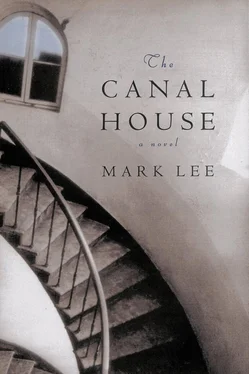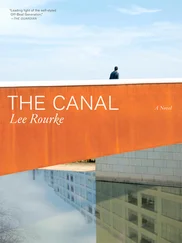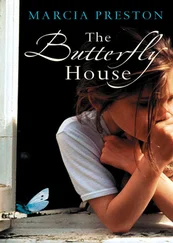I rode the underground into the city and checked into the Ruskin, a two-star hotel across from the British Museum. Alex, the Greek night clerk, smiled when he saw me and we had the usual exchange.
“Welcome back, Mr. Bettencourt. Where have you been?”
“Up, down, and all around.”
“Take lots of pictures?”
“Truckloads of them.”
“ Newsweek wants to talk to you.” Alex handed me a piece of fax paper and I unfolded it inside the tiny elevator that groaned to the second floor. Carter Howard had sent me a short but ominous message: Spiked you. Ran Reuters. Call for appointment .
I don’t normally go to expensive restaurants unless someone else is paying, but I had gotten into the habit of treating myself to one good dinner when I returned from an assignment. That night I took the underground to Touraine, a French restaurant in Chelsea. Touraine is at the end of a dark street and has a small sign over the entrance. When you reach the door, you think that no one could possibly be there; then you step inside and find that the place is filled with customers. After David, the owner, led me to my table, I ordered a bottle of Vosne-Romanée wine and some grilled mushrooms. I worked my way through a bowl of fish soup, sautéed chicken with braised leeks, veal à l’ardennaise , an herb salad, and pears poached in red wine. A meal like that can overwhelm your doubts and make you feel satisfied with the world, but images from Adana still lingered in my mind. I drank three glasses of cognac, paid the outrageous bill, and took a taxi back to my hotel.
I GREW UP IN MODESTO, an agricultural city in California’s San Joaquin Valley. A huge sign arches over the main street downtown and it proclaims four words: WATER, WEALTH, CONTENTMENT, HEALTH. Even when I was a child, I knew that I was different from my parents and their friends. I wanted to live in a place where people didn’t talk about property taxes and gas mileage.
I won a Nikon camera playing poker during my sophomore year at college, began to take photographs of the football games, and quickly discovered one of the key pleasures of being a photographer: It gives you an easy excuse to slide into other people’s lives. You’re there, part of the action, and yet the camera gives you a busy shield to insulate yourself from what you’re seeing in your viewfinder.
When I first started out, I didn’t know how to take a good picture, but I lacked three qualities that can inhibit a young photographer: dignity, shame, and fear. After graduating from college I moved down to Los Angeles, bought a police scanner from Radio Shack, and drove around the city looking for car accidents and other disasters. I would shoot two or three rolls of film, then drop them off at Associated Press and the local newspapers.
Eventually the Los Angeles Times printed my photo of a Latina mother weeping as her son was zipped into a body bag. At the edge of the photo they printed my name: NICKY BETTENCOURT—FOR THE TIMES. I didn’t feel proud at that moment, but more real, more substantial. I suddenly realized why fifteen-year-old kids climbed over barbed-wired fences and shimmied up concrete supports to spray paint their tags on freeway overpasses.
I began working for the major wire services and had a weekly feature called “Out of the Frame” in a local alternative newspaper. I would search out the bloodiest possible car accident, then photograph what was happening a few feet away from the paramedics—a little boy eating a snow cone or a cop picking his nose. The managing editor said it was “postmodern ironic” and my name was put on the masthead.
When the Bosnian civil war broke out, I sold my car, got some press credentials from the San Francisco Examiner , and flew to Sarajevo. I had never traveled in a foreign country, didn’t know any language other than English, and had never covered a war. Three days after my arrival in Bosnia, I found myself huddled in a foxhole near the Serbian lines, sharing a bottle of wine with Dieter Getz, the Austrian photographer. Aside from his photos, Getz was famous for his long blond ponytail and the pull-on-a-condom T-shirts he bought in Thailand.
“This job is very simple,” Dieter told me. “When there’s gunfire, the journalists, the soldiers, and the aid workers all fall to the ground.”
“Okay.”
“Yes. Okay. Okay.” He mocked my American accent. “But when there’s gunfire, we shooters stand up to take the picture. That’s the difference, Nicky. That’s who we are.”
• • •
I WAITED UNTIL the next morning, made an appointment to see Carter at three o’clock, then took the elevator down to the dining room in the basement. The Ruskin is a dump, but it’s one of the few hotels in Bloomsbury that doesn’t have American college students staying there during the summer. There’s something depressing about eating an English breakfast with a group of nineteen-year-olds from some Midwestern university.
It was a warm August day so I walked over to the Newsweek offices on Park Street, a few blocks east of the American embassy. I went upstairs to the third floor where Ann Weinstein, the young assistant photo editor, was scanning negatives into her computer.
Ann glanced at Carter’s private office. The door was closed. “We used Reuters for the quake.”
“Yeah. I know. That’s why I’m here.”
“Don’t lie and say you weren’t at that building.”
“Maybe I wasn’t.”
“Carter adjusted your color levels on his computer when I was in Cornwall for the weekend. You took a photo of a Turkish soldier wearing a red emergency vest. The same man is in Barbieri’s picture.”
“I wouldn’t have lied,” I told her. But maybe I lied when I said that.
“Carter!” she shouted. “Nicky’s here!”
Carter Howard was in his fifties, an elegant man with thinning hair who’d lived in London for the last eight years. He used to be a photographer, but he made the transition to editor when he fell in love with a young British artist named Jonathan Campbell. I’d never been invited to their row house in Kensington, but I’d heard about their herb garden and the immense studio with a skylight.
Whenever I dropped by the office, Carter liked to plug in his kettle and make tea. That afternoon he just stood there wearing his custom-made shirt and pleated trousers. Carter had picked up a slight British accent from living in London and he called me Nick-o-loss, dragging out the last syllable.
“Welcome back, Nicholas. I haven’t been out of my office the entire day. What do you say we take a walk through the park?”
“Sounds good to me.”
Carter pulled on his suit coat and I followed him downstairs. As we wandered up Alford Street, Carter described his attempt to grow antique English roses in a shady part of his garden. We took the pedestrian passageway under Park Lane to Hyde Park and stopped in front of a fountain. At the center of the fountain was an elaborate sculpture of a naked couple either dancing or falling through space while a bunch of cherubs surrounded them. Carter turned west and led me down a gravel pathway beneath some oak trees. The fountain was dedicated to lovers and the pathway was called Lovers’ Walk.
A little boy and girl were running across the park grass, trying to get a dragon kite up into the air. It could have been a good photograph, but I turned away from the shot and looked down at Carter’s polished wing tips. “Nice shoes,” I told him. “You always wear nice shoes.”
“New York isn’t happy with you, Nicholas.”
“New York can go to hell. They weren’t walking around Typhoid City, waiting for a goddamn golden retriever.”
“That’s your job.”
Читать дальше












